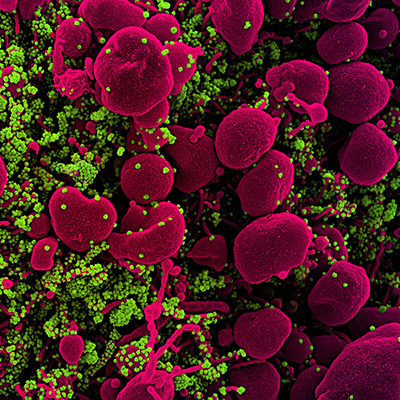August 24, 2020 -- In response to the global pandemic, the authors of a new paper are calling for a robust centralized platform to improve international data sharing among scientists and policymakers. The article was published on August 19 in the journal Science & Diplomacy.
In the current pandemic, virus outbreak data are collected by an array of local, regional, and national agencies, who then make the information available haphazardly with no documentation and no central, global hub. Data are published in a hodgepodge of formats including plain text, HTML, PDF, and a variety of incompatible comma-separated formats for download.
Furthermore, the types of data collected vary widely. Although most countries count the number of confirmed cases of COVID-19 and the number of deaths, they do not necessarily publish their testing data, patient demographic data, or clinical data such as symptoms and comorbidities.
As an example of a successful data-sharing platform that should be emulated, the authors pointed to the Global Initiative on Sharing All Influenza Data (GISAID), a nonprofit organization that was set up in 2006 to allow uniform sharing of data on flu genomes. When SARS-CoV-2 emerged in 2019, the GISAID platform was quickly adapted to the new virus and now houses more than 85,000 SARS-CoV-2 genome sequence submissions.
Inspired by the success of GISAID, the authors call on countries to work together under the leadership of the WHO to develop a similar system for harmonized sharing of other types of data for COVID-19 using a standardized format and standardized content. The centralized repository envisioned by the group would house not only pathogen sequence data but also case reports and demographic and clinical data vital to designing clinical trials and dosage trials for vaccines and therapeutics.
Another topic addressed in the paper is the flurry of scientific papers on SARS-CoV-2 being submitted to repositories such as bioRxiv. Sorting through these papers to inform evidence-based policy is daunting and scientists and policymakers can "drown in the open sea of literature; unsure which papers are life rafts and which are flotsam," according to the authors.
Since not all the published papers are of equal merit, and not all can be used to guide hypothesis design or public policy, the authors call for a compilation of high-quality papers, curated by experts, with summaries written for a broad audience.
"Identifying the most useful science and sharing it in a way that's usable to most researchers, clinicians and policymakers, will not only help us emerge from COVID-19 but could help us prepare for the next pandemic," said co-author Dr. Eric Vilain, PhD, director of the Center for Genetic Medicine Research at Children's National Hospital in Washington, DC.
Do you have a unique perspective on your research related to infectious disease research? Contact the editor today to learn more.
Copyright © 2020 scienceboard.net










